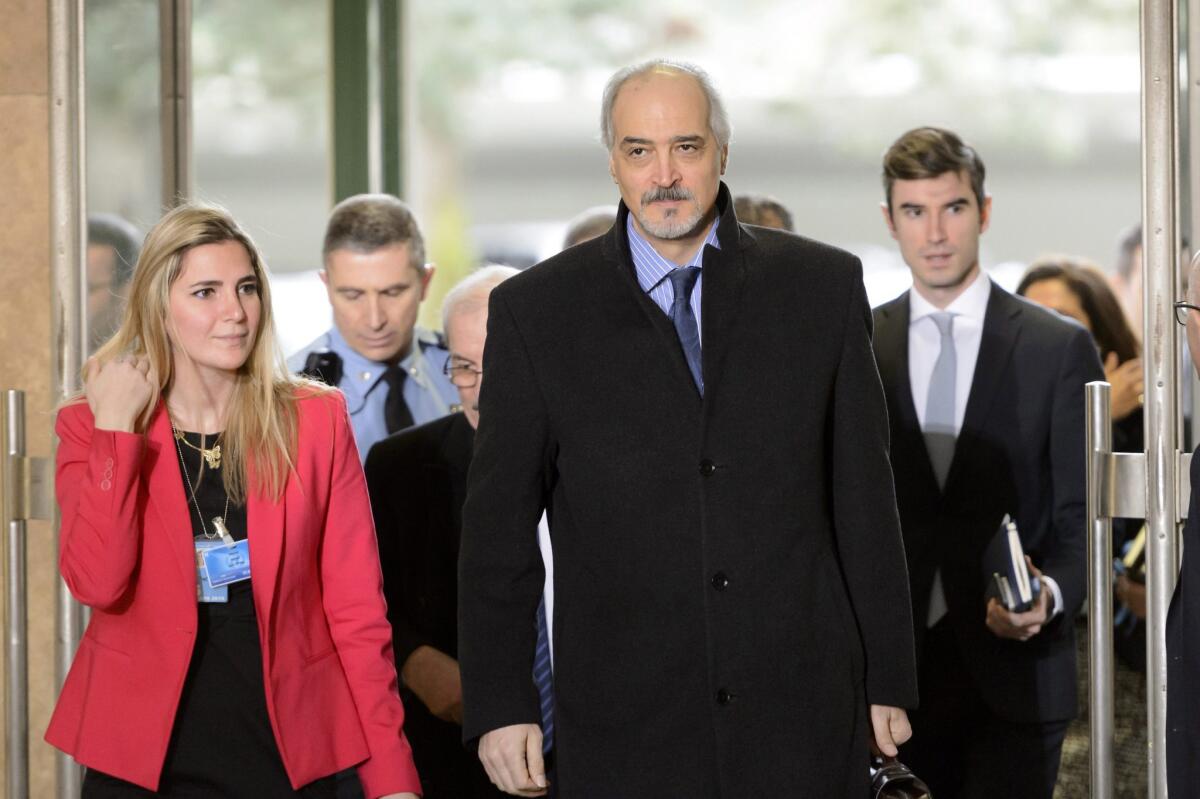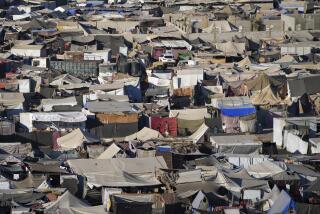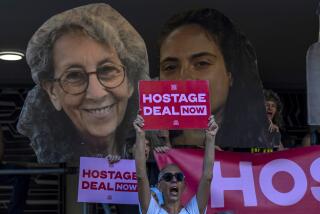Enough frustration to go around in Syria peace talks

The Syrian government’s chief negotiator, Bashar Jaafari, center, arrives for talks with U.N. peace envoy Staffan de Mistura at the European headquarters of the United Nations in Geneva on Feb. 2, 2016.
Both sides in the Syria peace negotiation expressed frustration Tuesday with the sluggish progress of the talks, raising new doubts about the viability of the most determined diplomatic push to date aimed at ending the nation’s almost five-year conflict.
The renewed sense of uncertainty came a day after the chief United Nations mediator, Staffan de Mistura, confidently declared that the talks had officially “started,” allaying fears that the process could collapse before it began.
But mutual distrust between the two sides — the government of Syrian President Bashar Assad and the leading opposition delegation — was front and center again Tuesday. Talks on any substantive issues do not appear to have taken place.
The opposition bloc demanded an end to ongoing government advances in Syria, citing Syrian Army thrusts outside the cities of Homs and Aleppo. Air strikes by Russia, a Syrian ally, have helped government forces push forward on a number of battlefronts since Moscow intervened last September.
“Our first goal is to try to pressure toward stopping this escalation,” Fara Atassi, a member of the leading opposition committee, told reporters outside U.N. headquarters in Geneva.
The opposition committee has insisted that substantive talks cannot begin until the Syrian government and its allies take several steps, including ending bombardment and sieges of rebel-held areas and releasing some prisoners. The government says it will not accept “preconditions,” but is willing to discuss whatever proposals are formally on the table as part of the talks.
See more of our top stories on Facebook >>
“The regime’s and Russia’s actions gravely threaten the political process at this early stage,” Atassi said in a statement. “We need the international community to take immediate, serious, and clear steps to ensure the credibility of this process.”
One of the goals of the Geneva talks is to achieve a lasting cease-fire in Syria as a prelude to government reform, the writing of a new constitution and U.N.-backed elections in Syria. But, having seized battlefield initiative in the run-up to the talks, Damascus has given no indication that it is willing to cease broad offensive operations absent a negotiated settlement.
On the government side, Damascus’ negotiating team complained that vagueness clouded the Geneva process.
“So far, nothing is clear,” declared Bashar Jaafari, the chief government negotiator, in comments to reporters. “There are no clear answers. What is the agenda of the meeting? … The important procedural issues have not yet been dealt with.”
In particular, the government is perturbed that it has not been provided with a list of the names of the opposition delegates, names that have not been made public by the United Nations.
The Geneva negotiations will not be face-to-face sit-downs but rather “proximity talks,” in which opposing sides remain in separate rooms. U.N. mediators will shuttle from delegation to delegation. Still, Syrian government officials say they want to know who is on the other side.
“So far, we do not know who are the delegations that are supposed to represent the Syrian opposition,” said Jaafari, Damascus’ ambassador to the United Nations, who added that he had asked the U.N. to provide the names.
The talks are backed by major powers on both sides of the conflict, including the United States and Saudi Arabia, which back the opposition; and Russia and Iran, which support Assad’s government.
Diplomats have called the current Geneva process the best chance to end the punishing Syrian conflict, which has cost more than 200,000 lives and helped generate a refugee crisis stretching to Europe, among other deleterious effects. U.N.-brokered talks in Switzerland two years ago collapsed amid disagreements on key issues, including the future of Assad, who has said it is up to the “Syrian people” to decide whether he should stay or go. The main opposition bloc in Geneva insists that Assad must step down as part of any peace process.
The U.N. has effectively named a Saudi-based opposition umbrella group, called the High Negotiations Committee, or HNC, as the chief opposition delegation, though the U.N. also has invited other opponents in apparent observer roles. The committee includes both Syrian political dissidents and representatives of several armed rebel militias.
Damascus and Moscow consider a pair of the Islamist armed factions represented in the opposition committee to be terrorists.
Whether members of either of those factions — Ahrar al Sham and Jaish al-Islam — were to be part of the committee’s formal negotiating contingent at the Geneva talks was not clear. But the HNC delegation in Geneva includes Mohammed Alloush, a leading figure of Jaish al-Islam, which controls a broad area in the suburbs of Damascus. Alloush has described himself in interviews as the committee’s “chief negotiator.”
The opposition bloc has dismissed as extraneous the government’s complaints about not knowing the identities of those with whom it is supposed to be negotiating.
“Our names are available and our names are known, and we represent many people, many Syrians,” said Atassi, a member of the Saudi-based opposition committee. “We are a sample of the opposition.”
McDonnell is a Times staff writer and Bulos is a special correspondent.
Twitter: @mcdneville
ALSO
‘The talks have started’: U.N. mediator meets with Syrian opposition
Bombs kill more than 50 people in Syria; progress is elusive at Geneva peace talks
U.S. to urge partners to do more to fight Islamic State amid complaints from Pentagon
More to Read
Sign up for Essential California
The most important California stories and recommendations in your inbox every morning.
You may occasionally receive promotional content from the Los Angeles Times.










